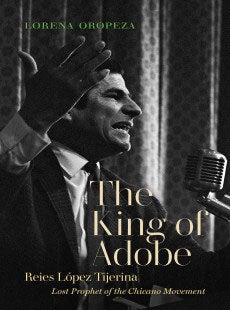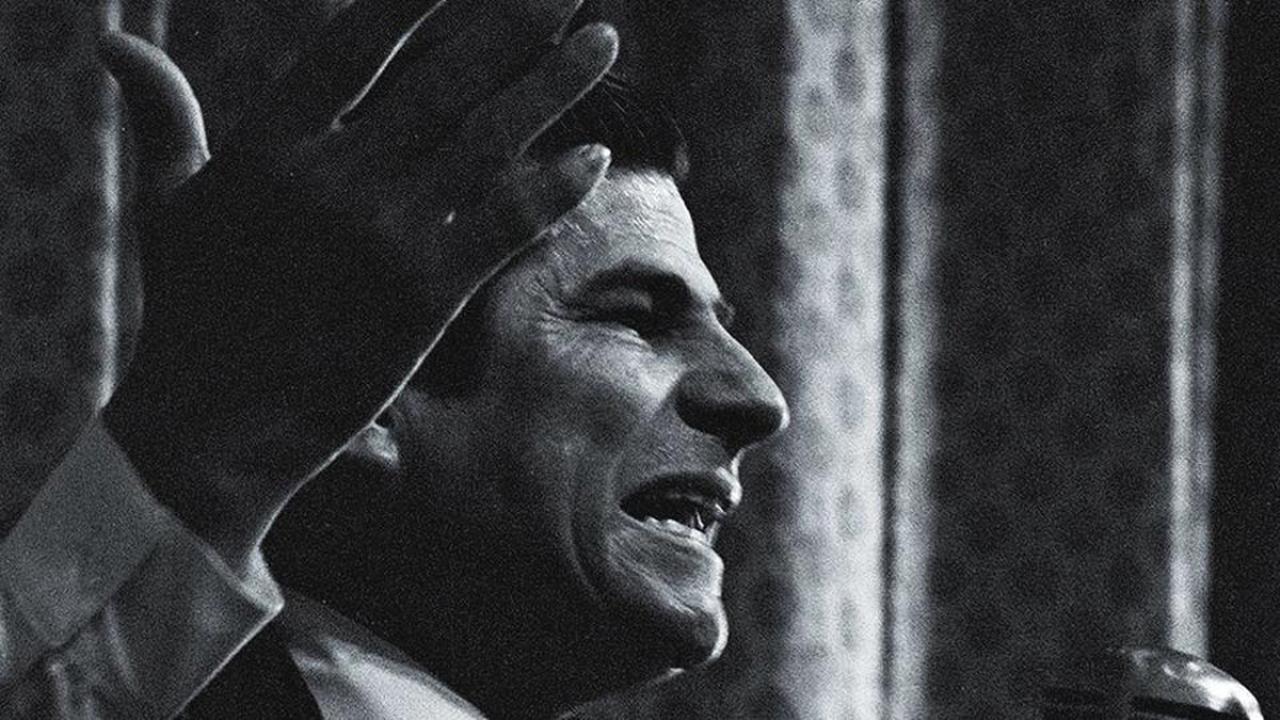
- The King of Adobe: Reies López Tijerina, Lost Prophet of the Chicano Movement
- By Lorena Oropeza, professor of history
- University of North Carolina Press, September 2019
“Oropeza reveals Tijerina not only as a protest leader and organizer but also as a tragically flawed human being and an intellectual whose ideas about settler colonialism are today in wide circulation.” — Benjamin H. Johnson, author of “Escaping the Dark, Gray City: Fear and Hope in Progressive-Era Conservation”
Lorena Oropeza, professor in the Department of History, conducted intense archival research and personal interviews in writing the first full biography of Reies López Tijerina, a leader of the Chicano movement, recounting his childhood, activism and memoirs.
AUTHOR AUDIO
She provides an in-depth look at a complex man who cannot accurately be defined as either hero or villain, although he has been called both. In 1967, he led an armed takeover of a New Mexico courthouse in the name of land rights for disenfranchised Spanish-speaking locals. The small-scale raid surprisingly thrust Tijerina and his cause into the national spotlight, catalyzing an entire generation of activists. Tijerina and his group, the Alianza Federal de Mercedes — or the Federal Alliance of Land Grants — demanded that Americans attend to an overlooked part of the country’s history. The United States, he held, was an aggressive empire that had conquered and colonized the Southwest and subsequently wrenched land away from border people -- Mexicans and Native Americans alike.
Like other activists of the time, Tijerina was part of the Civil Rights Movement. However, Oropeza describes Tijerina as providing “a compelling and militant alternative to the nonviolence of Cesar Chavez and Martin Luther King Jr.
He believed in the spiritual significance of dreams and coincidences, held religious motivations for justice, and was willing to bear arms for his cause. Tijerina maintained that after the Mexican-American war, the treaty of Guadalupe Hidalgo did not follow through on its promises of land rights to Mexicans living in what had become America. His activism culminated in an armed takeover of a New Mexico courthouse in 1967, and eventually resulted in his own arrest and imprisonment.
Leigh Houck is a senior — Spanish literature major, writing minor — who works as in intern for the News and Media Relations Team in the Office of Strategic Communications.

